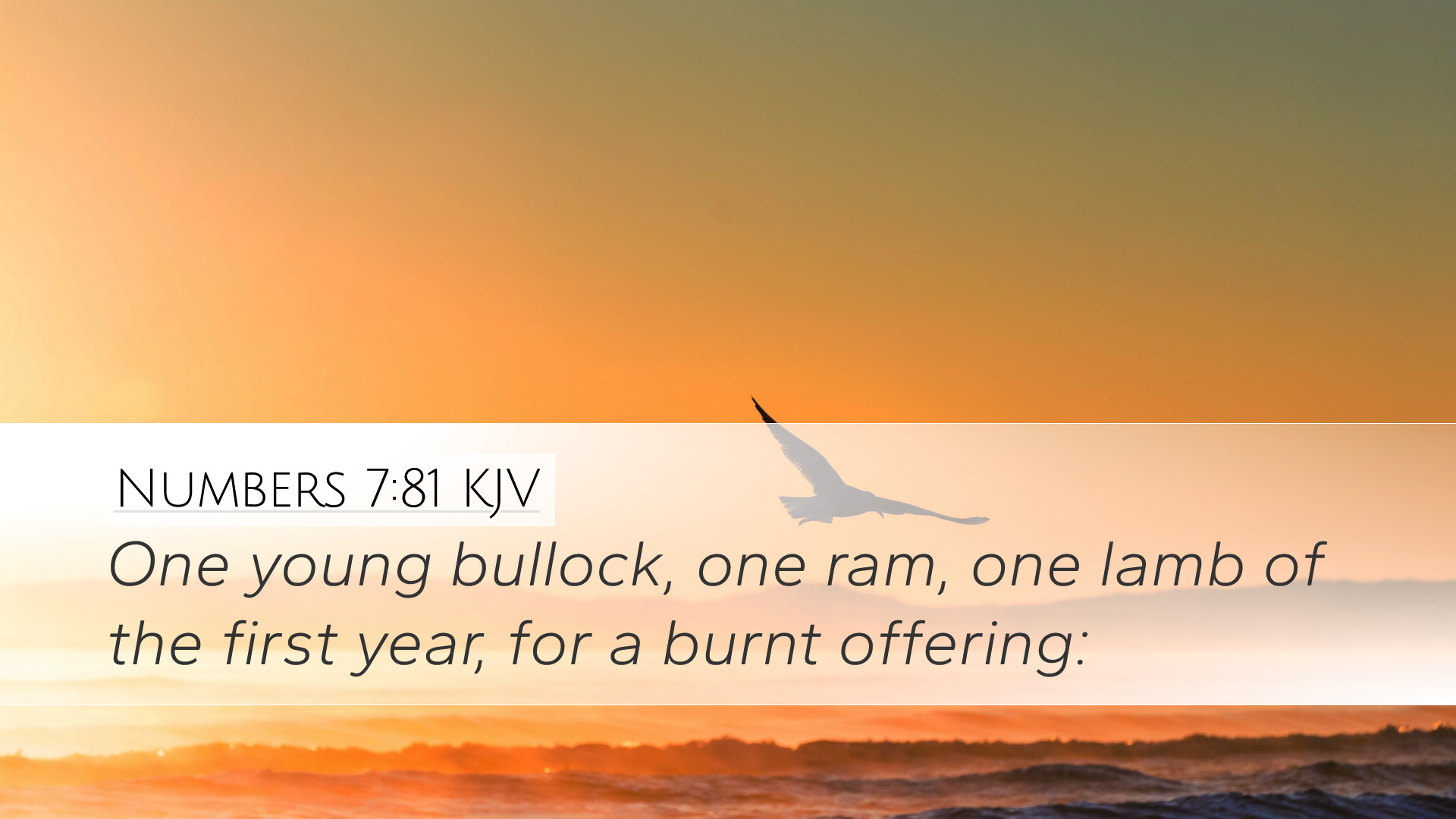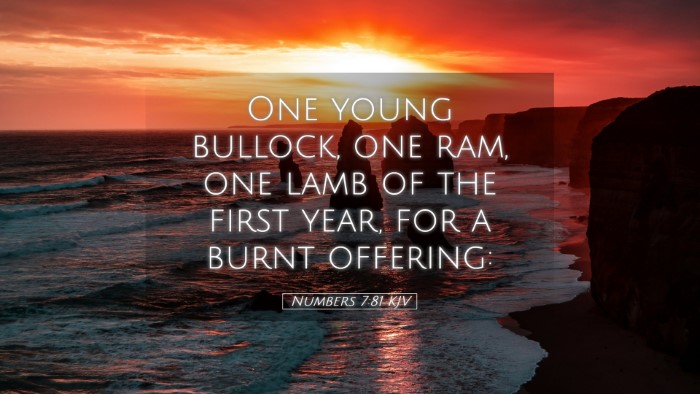Commentary on Numbers 7:81
Numbers 7:81 states: “The offering of the atonement for the twelve tribes of Israel, whose princes were judged by the value of their gifts.” This verse is part of a broader context where the contributions of the leaders of Israel are detailed, emphasizing their role in the community and their relationship with God.
Overview of the Context
The Book of Numbers is situated in the wilderness period following the Exodus. It serves to record the wanderings of Israel and their establishment as a nation. Chapter 7 particularly focuses on the offerings made by the leaders of each tribe, representing both individual dedication and communal responsibility to God.
The Significance of the Offerings
The offerings presented in this chapter are a reflection of gratitude, dedication, and a desire for atonement:
- Gratitude: Each tribe's leader presented gifts, acknowledging God’s providence and grace.
- Dedication: The offerings symbolize the tribes’ commitment to God and His service.
- Atonement: The offerings were also a means of seeking reconciliation and purification before God.
Insights from Commentaries
Matthew Henry's Commentary
Matthew Henry emphasizes the collective nature of Israel's worship, illustrating that the offerings were not only personal but also communal. He notes that the leaders’ contributions signify their responsibility towards their respective tribes, indicating a model of leadership that is sacrificial and service-oriented.
Albert Barnes' Notes
Albert Barnes elaborates on the system of offerings, pointing out that each offering was meticulously prepared and offered in accordance to specific guidelines. He views these contributions as a means of maintaining order and structure within the community of Israel. His analysis brings to light the importance of obedience to divine instruction in worship practices.
Adam Clarke's Commentary
Adam Clarke provides a deeper theological reflection on the concept of atonement. He connects this verse with the overarching narrative of redemption throughout Scripture, indicating that these offerings foreshadow the ultimate sacrifice of Christ. Clarke asserts that the atonement, seen in the leader's offerings, ultimately points to the need for a savior who would provide for humanity's reconciliation with God.
Theological Implications
This verse encapsulates several theological themes relevant for both pastoral application and scholarly discussion:
- Leadership and Responsibility: Leaders in the church today are called to model sacrificial service, taking responsibility for their communities.
- Community Worship: The act of offering underscores the necessity of corporate worship and the importance of every member's contribution.
- Foreshadowing Redemption: The offerings point toward the greater theme of atonement found in Christ, enriching our understanding of the sacrifices made for our sins.
Practical Applications
The insights extracted from Numbers 7:81 provide significant guidance for present-day practice among pastors and leaders:
- Encouraging Generosity: Churches can foster an environment where giving is seen as a joyful act of service to God.
- Modeling Leadership: Pastors and leaders should strive to lead by example, exhibiting a lifestyle of sacrifice and service.
- Fostering Community: Promote a sense of unity and shared purpose within the congregation, emphasizing the impact of collective worship.
Conclusion
Numbers 7:81 serves as a vital reminder of the importance of atonement and sacrifice within the framework of Israel's worship. This verse, through the lens of various commentaries, illustrates timeless principles of leadership, communal service, and the redemptive nature of God’s requirements. As believers today reflect on these themes, they are encouraged to engage in sacrificial living that honors God and serves their community.


